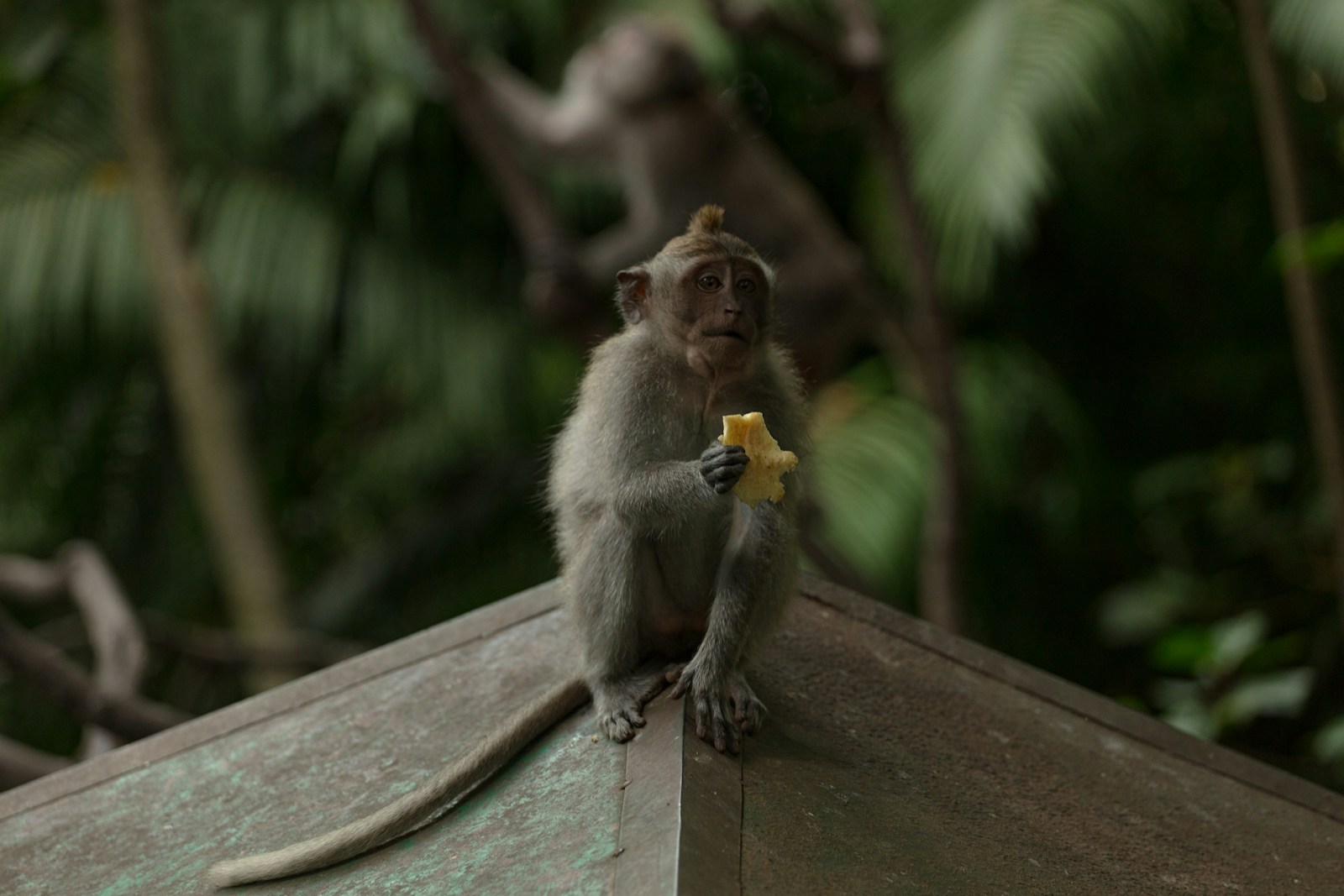
mono

monkey
Monkeys are primate of the family Cercopithecidae. Monkeys can often be very intelligent and cunning creatures, and some are able to use tools and engage in complex social behavior.
Example sentences using: mono
Jorge tiene un mono de moto.

Jorge has a motorcycle jumpsuit.
Jorge has a motorcycle monkey.
El mono está en el árbol.

The monkey is in the tree.
In this case, 'Mono' is used to represent an animal, specifically a monkey. The entire phrase is an example of a simple sentence structure in Spanish.
Tengo un mono de trabajo.

I have a work monkey.
This phrase is using 'mono' in an idiomatic expression which means 'having a strong desire or craving'. So, in context, this phrase means 'I'm really eager for work'.
Estoy de un mono que no veas.

I am of a monkey that you do not see.
This is another idiomatic expression. In reality, it means 'I am in a really bad mood' or, more literally, 'I am cranky'.
Ese vestido es muy mono.

That dress is very cute.
'Mono' can also be used to mean 'cute' when describing items such as clothing.
Vive solo como un mono.

He lives alone like a monkey.
In this phrase, 'Mono' is a metaphor for someone living in solitude akin to a jungle-dwelling primate. It’s a comparison, so the sentence could mean 'He lives alone, in the same way a monkey does.'
Ana está haciendo el mono.

Ana is monkeying around.
'Hacer el mono' is an idiomatic expression, translated literally as 'doing the monkey', but it means to horse around, act silly or draw attention to oneself.
Pedro es un borracho, siempre con un mono en la mano.

Pedro is a drunkard, always with a monkey in his hand.
In this phrase 'mono' is a slang term representing a bottle of alcohol. So it means 'Pedro is always carrying a bottle of alcohol'.
Marta es mona, siempre viste bien.

Marta is cute, she always dresses well.
In this phrase 'Mona' is used as an adjective to describe someone or something as cute or attractive.
Le compré un mono a mi hija.

I bought a monkey for my daughter.
In this context, 'Mono' means a stuffed animal toy or a doll, not a real monkey. It's used to refer to cute things.